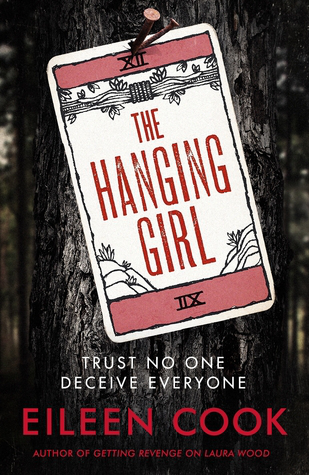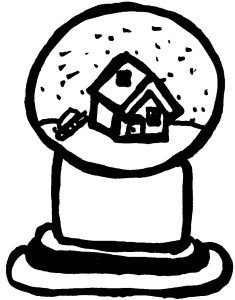 Title: Room Empty
Title: Room Empty
Author: Sarah Mussi
Published: 6th April 2017
Rating: 2/5 stars
Find On: Goodreads | Amazon
Summary: Fletcher and Dani are fighting their own inner demons just to stay alive. Dani is ravaged by anorexia and hasn’t eaten for days. Fletcher is fighting to stay off the streets and to stay off drugs. Will their attraction to each other save or destroy them? Both patients at the Daisy Bank Rehab Centre, Fletcher wants to help Dani find out about the Room Empty at the heart of her pain: What happened to Dani in that room when she was four? Whose is the dead body that lies across the door? Why won’t her mind let her remember?As Dani and Fletcher begin to learn how to love, Sarah Mussi weaves an intoxicating story of pain, fear and redemption.
*I recieved a free eARC of this book from the publishers in exchange for an honest review.
(I accidentally published this a few days ago before I finished editing it, sorry about that! So here’s a nice, finished version of the post!)
Review:
*Trigger warning for eating disorders, suicide, drug abuse and child abuse. Please proceed with caution if any of these topics are difficult for you!*
So, I was fairly excited to read this because I’ve been trying to read more books featuring mental illness, as it is something I feel passionate about, eating disorders especially. And I was weary when starting this book that this book might feature love ‘fixing’ the characters’ problems, although I was hoping that this wouldn’t be the case. But that wasn’t what frustrated me whilst reading this book.
Just a bit of a disclaimer: A lot of this review is focused on Dani and the treatment of her eating disorder because that’s something I know a fair amount about (and it’s also mostly what the book focuses on). I don’t know as much about drug addiction, which Fletcher the main male character is dealing with, so I haven’t commented as much on the treatment of it.
This novel is told from the eyes of Dani, a patient at the Daisy Bank Rehab Centre, who’s been suffering with anorexia for most of her life. The portrayal of Dani’s eating disorder itself was fairly accurate, such as her setting herself strict rules to follow concerning what and when she could eat as well as comparing what she eats to what everyone else is eating. These things are typical of someone suffering from anorexia however what I couldn’t understand about this story was the treatment of Dani’s illness at the rehab centre. I’m not completely sure how rehab centres would differ from hospitals when it comes to treating anorexia. And I also understand that the rehab centre featured in this story isn’t supposed to be the best centre ever but, still, Dani recieved little-to-no support for her illness and this really frustrated me.
Multiple times in this book Dani mentions how she feels faint after walking up the stairs, how she can feel how irregular her heartbeat is and how she is so close to dying. And I just couldn’t stop thinking why isn’t Dani in a hospital? If Dani is so thin and close to death, she shouldn’t be allowed to walk around the centre, she should be on bed rest connected to a cardiac monitor with regular doctor/nurse visits. I disliked how this book talked about the implications to Dani’s physical health as a result of starving herself yet took no precautions against it. I can’t believe that no staff member at the rehab centre recognised that Dani was dangerously thin and needed medical attention. And, seeing as this book is set in the UK, medical help shouldn’t have been impossible for Dani to access.
“And an eating disorder is the most difficult addiction to quit.”I also can’t believe that no staff seemed to make an effort to support Dani’s recovery outside of compulsory group therapy sessions. Group therapy can only help so much and there was no mentions of one-to-one therapy, which is just as important. Dani was allowed to go days without eating and the only person who seemed to care about this was Fletcher, her newly assigned recovery buddy.
In this rehab centre drugs are banned, which you’d expect, to deter those who misuse drugs from continuing to do so. But how come Dani is allowed to sit at lunch with an empty plate and continue her addiction?
This plot of this story is centered around everyone having a ‘room’ in their mind where difficult emotions and experiences are kept hidden. Fletcher, Dani’s recovery buddy and love interest, is determined to find out what is in Dani’s ‘room’ and help her overcome it. I liked Fletcher’s character, he was caring and honest and determined to help Dani, although all of this seemed to be in an attempt to cover up his own problems.
But, I disliked how quickly Dani and Fletcher became close and how they needed to save each other from their addictions, as if it was only their love which could tackle their problems. Friendship and love can be extremely helpful when helping an individual recover from a mental illness but they aren’t a be all and end all of the recovery process. In all fairness, this book did touch on the character’s battling their problems individually but this didn’t seem to be it’s main focus.
There are some other things which frustrated me about this story but I don’t want go into them too much because spoilers. But there were things I liked about this book, such as the controlling and toxicity of Dani’s thoughts about food and herself. The writing was also engaging and easy to read. However, these things didn’t make up for the things which I didn’t like about this book.
A part of me wonders whether I’m overthinking what happened in this story or I’m missing something or I’m taking this story too personally or literally. And I hate being so negative but I wanted to share all these thoughts anyway.
Advertisements Share this:




